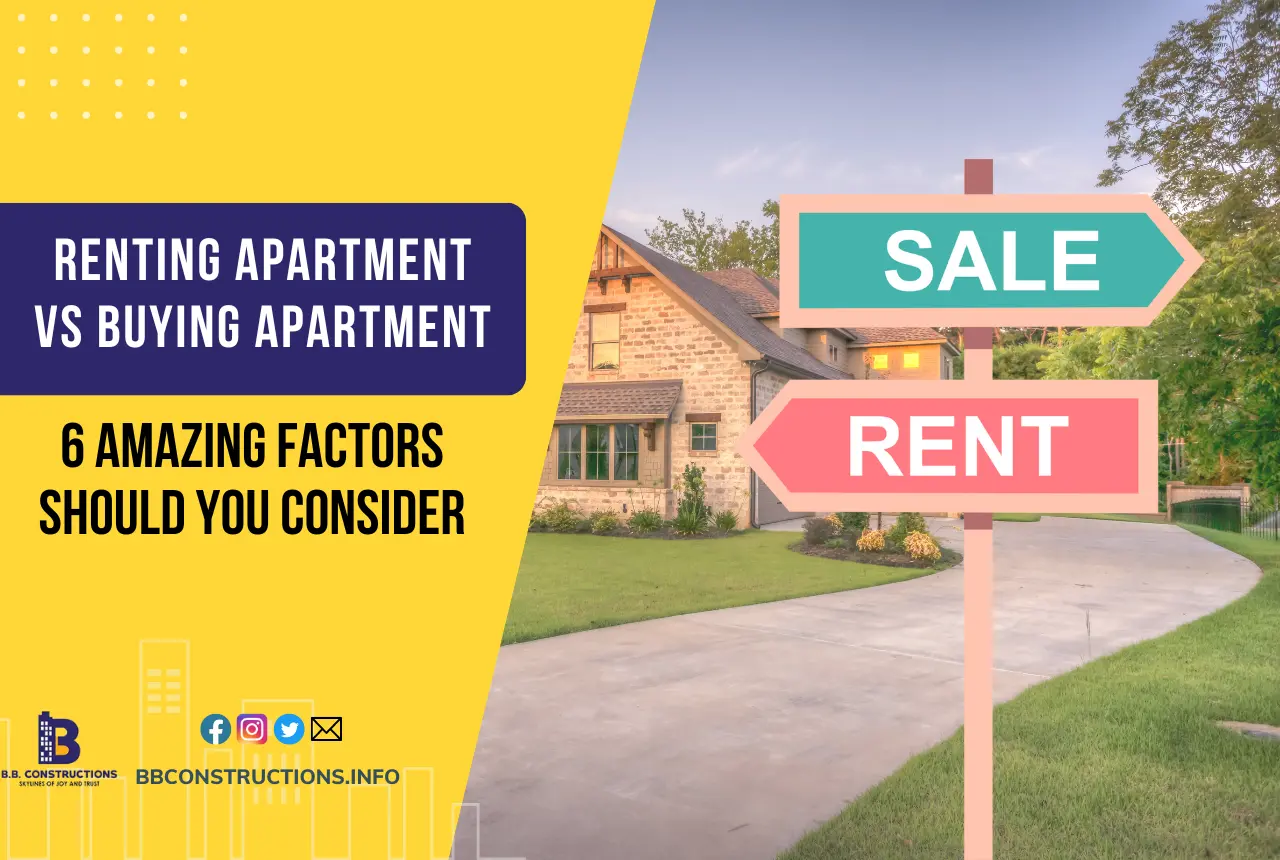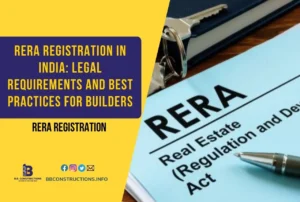![]()
Renting apartment vs buying apartment? This is a common dilemma, balancing financial implications with personal needs. It’s a question many face when they need to shift to a new apartment, and their decision will be based on the personal requirements of both parties. Nowadays, such questions have become easy to resolve due to advanced fiscal theories and further advice from economists and experts. Given below are six key factors that could help you decide whether you should rent or buy.
Renting Apartment vs Buying Apartment: A Comparison You Can’t Miss
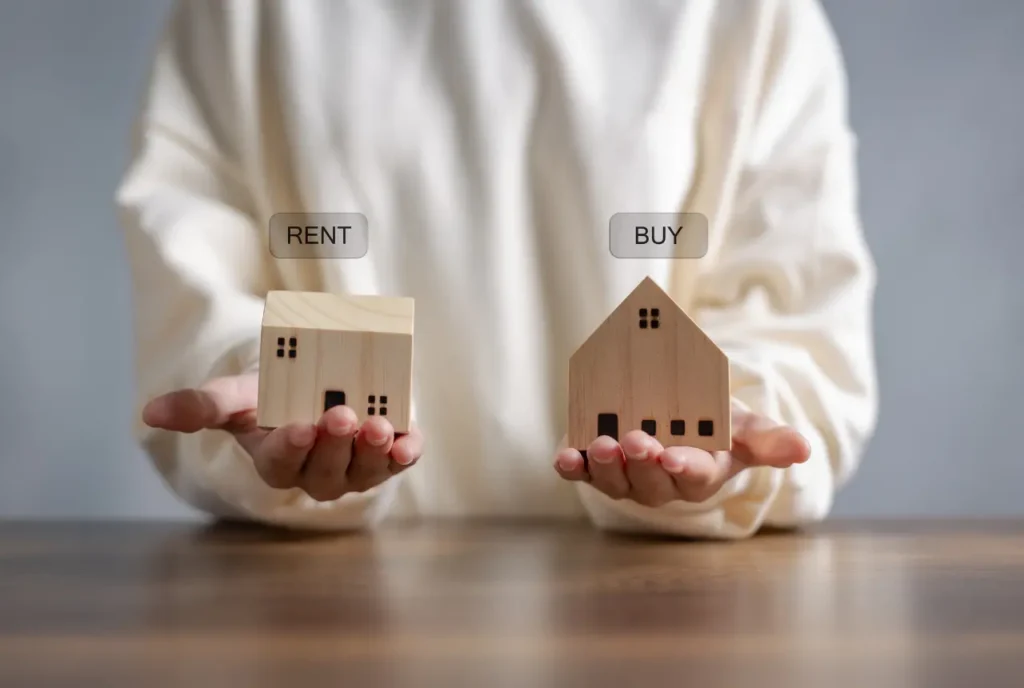
Whether to rent or buy an apartment has been a serious and heated debate, more so in the current housing market. According to 2024 statistics, growing interest rates and an acute lack of housing have continued to increase the challenges of owning a home for many. Take, for example, the median home price in the US, which was about $420,800 while rental charges in big cities increased so much that some even increased by as much as 40%.
Comparing both options, this article will try to look at such factors as financial implications, flexibility, responsibility in maintenance, equity building, stability, and tax benefits. Looking at the factors outlined above, readers can make an informed choice for their particular financial situation and lifestyle.
Present an overview of the article’s goal to compare both options based on key factors.
1. Financial Investment

Commonly, when renting, the lessee is expected to pay a security deposit and monthly rent, which is generally cheaper in terms of a down payment than the down payment needed to buy an apartment. Over the long run, however, buying an apartment can be more financially conducive because one builds equity in the property.
According to the latest data, Bengaluru-the Silicon Valley of India-had a ‘big-bounce back’ in rental yields, which stood at 4.45% for the first quarter in 2024 and was up by 24% compared to pre-pandemic times. Other significant cities like Pune, Noida, Delhi, Navi Mumbai, and Thane have also seen uptrends in rental yields.
2. Flexibility and Mobility

The freedom of renting an apartment lies in the fact that when it is time for you to move to a different place once your lease expires, it doesn’t tie you up for an extended period. This will thus work in your favor, especially if you change careers or have to shift to a different area soon. Buying an apartment, by contrast, requires you to make a longer-term commitment and makes you tied down.
3. Maintenance and Responsibility
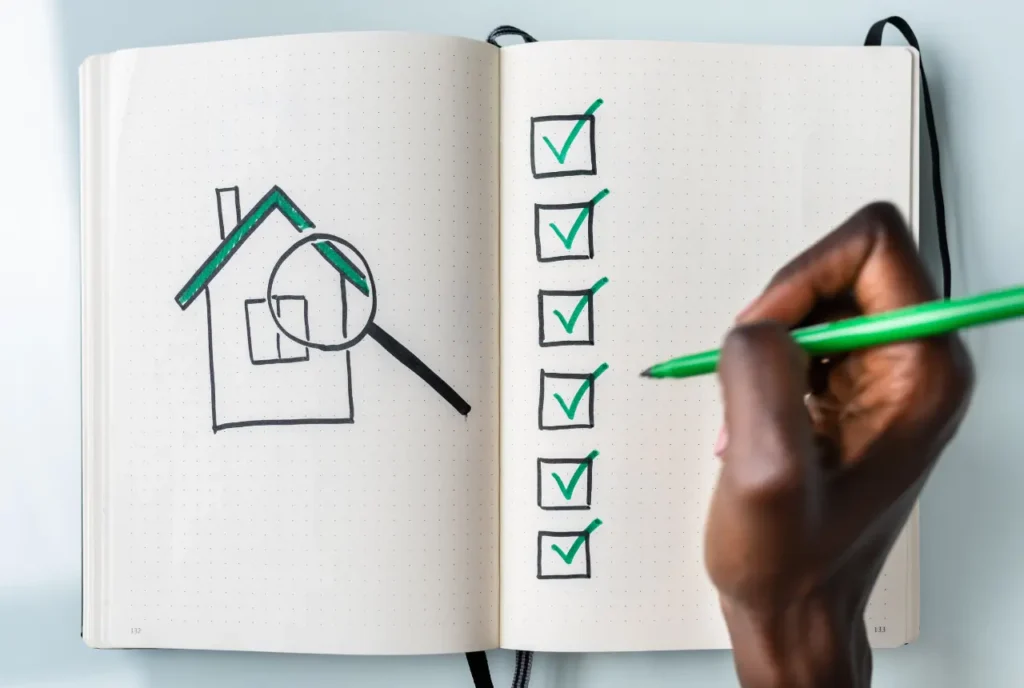
Owning an apartment involves some maintenance and repair costs, which may be expensive. But, generally, the cost of most of the maintenance will be borne by your landlord if you are renting. Some people prefer that a landlord takes care of the problems, though.
Homeowners mostly shoulder the burden of their own maintenance and repair, which can be pretty costly. Examples include plumbers’ and electricians’ problems, which require a great deal of money and time to solve.
On the other hand, most of the maintenance falls on the landlords; for instance, the major repairs done by renters are left to the landlords, but minor upkeep is done by the tenants. For instance, in case the refrigerator stops working, then the landlord should remedy the matter.
4. Building Equity vs. No Ownership

Purchasing an apartment gives the homeowner equity over time as they pay down their mortgage and the appreciation in value of the property. Equity is that part of the property that owners actually “own,” which can also represent a valuable financial asset.
Where in contrast equity is neither available with renting nor do monthly payments build personal investment wealth, they do advance an investor’s fund.
In an appreciating housing market, equity also offers long-term financial incentives in terms of realizing higher net worth and potential opportunities for home equity loans to invest in or pay for future expenses. The opportunity to leverage what a person owns makes owning a home very attractive for one seeking to set up his or her financial future.
5. Stability and Security
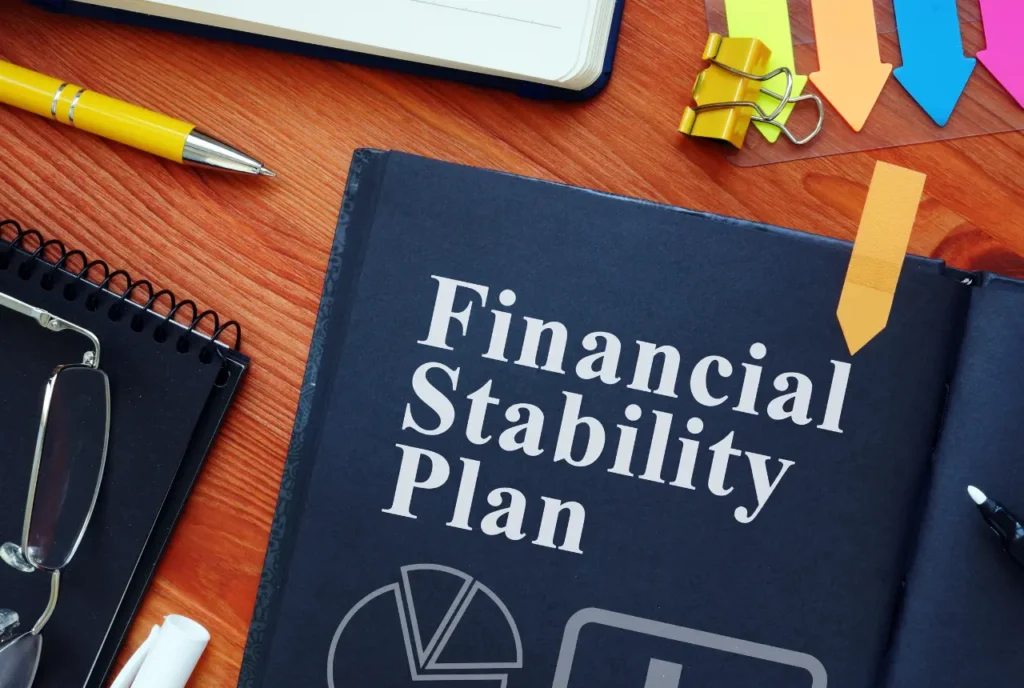
Owning a home gives many different kinds of stability: stability regarding rent increases or the chance of being evicted. This kind of security can be a very liberating feeling and can make it possible to plan for the long term, but also it can give peace of mind in knowing that your living situation is mostly in your control.
Tenancy, on the other hand, could probably offer instability in terms of lease terminations, unexpected rent hikes, or changes in property management that may disrupt tenancy.
This stability difference does have long-term implications for personal security and monetary security. Homeownership can give a feeling of permanence and investment in the community, whereas rental tenure might make a person uncertain with regards to frequent relocations into account overall well-being and financial planning.
6. Tax Benefits and Financial Incentives

Under the Income Tax Act, homeowners also receive great tax benefits. Section 24(b) allows interest paid on self-occupied property up to ₹2 lakh per year to be claimed, besides an extra ₹1.5 lakh under Section 80C for principal amount repayment. In contrast to this, tenanted households do not enjoy such tax benefits due to the rental payments not forming any part of owning or equity building.
Newly presented in section 80EEA, fresh avenues for a deduction on interest payments have been introduced since 2024. These encourage more savings on interest payments for first-time home buyers. With increased attractions in the financial aspect, homeownership now becomes a much more appealing option compared to renting, especially in an appreciating market.
Current Trends in Renting and Buying Apartments
It’s 2024, and the world has a few interesting trends in terms of housing: interest rates have risen to a level that raises housing shortages and tremendous rent hikes across major cities. That contributes to making mortgages more expensive, which can attract fewer prospective buyers and drive them to renters instead.
Rents in India’s major cities have risen on average 16% per year, with some areas spiking over 30%. With new housing supply entering the market at around 531,470 units expected in 2024, rental growth has begun to stabilize compared to previous increases of 4-9%, dropping to 2-4% during the last quarter.
Thus, these trends would affect the choice between renting or buying: what is shown in the end is that a rent increase pushes some into homeownership for long-term stability, but higher costs of mortgages make renting all the more sensible, compared to uncertain economic situations, in the short term.
Which Option Is Right for You? Making the Final Decision
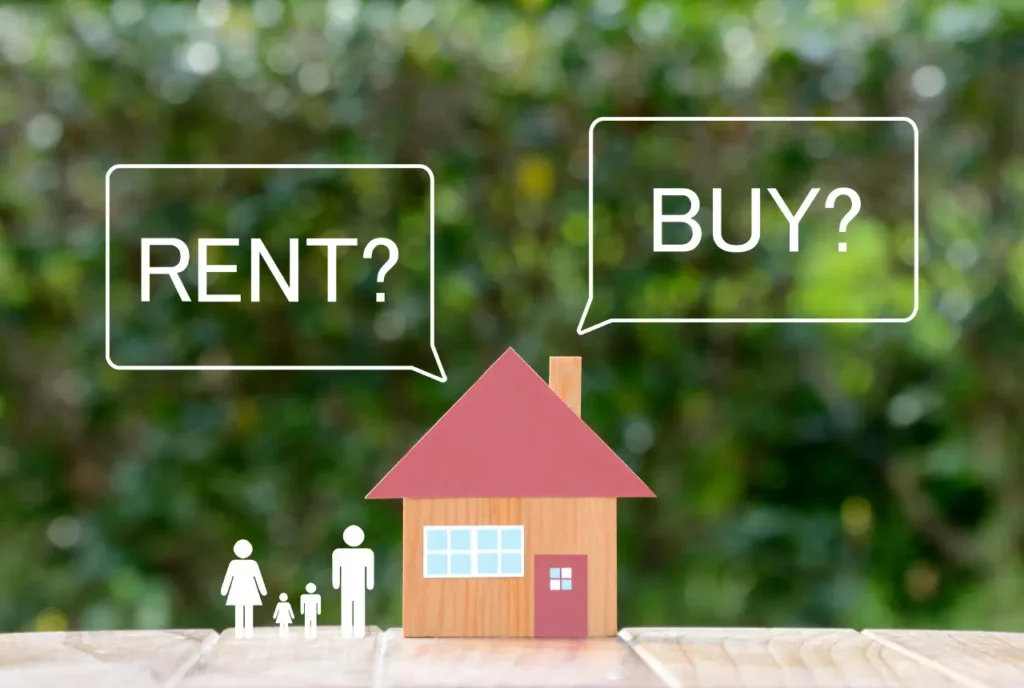
Which option is right for you will strictly depend on your financial situation and lifestyle, as well as long-term goals. Here is a general framework to help you evaluate your options:
When Renting is Better:
- If you know you’re going to be moving in the short term.
- If the costs of buying (down payment, closing costs) are prohibitive.
- If your job or personal circumstances require a lot of mobility.
When Buying is Better:
- You are going to stay at the place for a long time.
- You will comfortably pay the down payment and the running cost.
- You want to invest in appreciating property.
Practical Checklist:
- Assess Your Finances: Savings, income stability, and credit score.
- Assess Your Lifestyle: Job stability, family needs, and personal preferences
- Research the Market: Real estate trends in your localities and their rentals.
- Calculate Costs: Compare monthly rent versus mortgage, including taxes and maintenance.
- Future Plans: Where do you see yourself in 5-10 years?
Knowing the ins and outs of renting apartment vs buying apartment helps make the right decision based on your goals and circumstances.
Conclusion
In short, the decision of what to choose in renting apartment vs buying apartment should be made with the above considerations in mind: financial investment, flexibility in use, maintenance of the property, building of equity, stability, and tax benefits. Each of these has its pros and cons depending on the situation and objectives set for the future.
Now that you have weighed these considerations, it’s equally important to spend time investigating your financial situation and what you need in terms of lifestyle. For further help, consider seeking an appointment with a financial advisor or using a rent vs. buy calculator to crunch the numbers and help come to a decision. An informed decision will lay the foundation for your future financial security and personal satisfaction.

